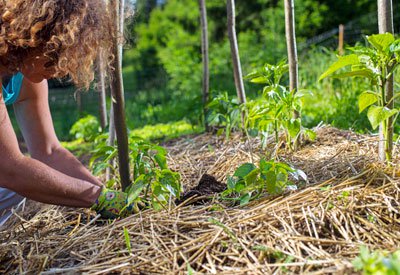The best mulch can make all the difference in your yard. With so many types of mulch available, it can be difficult to choose one. From shredded bark to compost, we cover the mulch basics to help you select which one will work best in your landscape.
While mulching may seem like a basic part of gardening, there is so much to learn about the different types of garden mulch and what benefits each type provides. We’ll show you how to compare and contrast the different types of mulch and what situations to use them in.
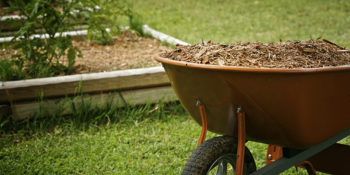
Mulch Benefits
There are a number of advantages to adding mulch in your garden. In the summer, mulch helps the soil hold moisture so you don’t have to water your garden as often. In the hot sun, soil also tends to dry out faster and harden. Mulch will help with this by protecting the soil from direct sunlight.
Mulch also prevents weeds. Adding mulch to your planting bed will block light from openings in the soil, therefore inhibiting weed germination. By adding a thick layer of mulch, you’ll ensure that the weeds never see the light of day!
Types of Garden Mulch
Shredded Bark
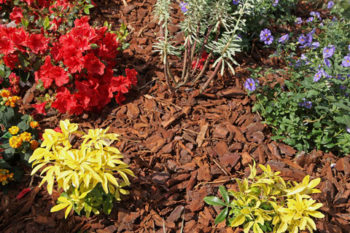
Shredded bark is one of the most common and least expensive types of mulch. It comes from a variety of sources, including cedar trees. Shredded bark is one of the best mulch types to use on slopes and it breaks down relatively slowly. Some shredded-bark products are byproducts from other industries; they’re considered environmentally friendly. Check the mulch packaging for more information.
Straw
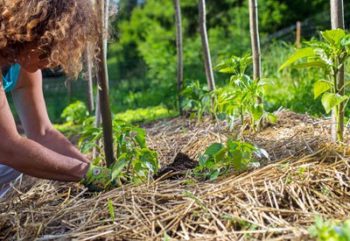
Straw mulch has a beautiful golden color that looks great in the garden. It’s also a bit slower to break down than leaves or grass clippings. Some gardeners like smaller, more shredded straw pieces while others prefer larger straws. Straw is classically used in more utilitarian gardens, such as vegetable gardens, and under strawberry plants. Straw does a great job of keeping mud out of your edibles.
Compost
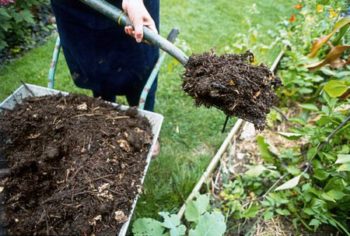
Compost looks like soil, except it’s darker, so it really sets off plants well. This mulch material breaks down quickly but adds to your soil structure the fastest. Plus, it’s inexpensive; you can create your own rich compost for free. Many municipalities give away compost as well.
Pine or Cedar Bark Chips
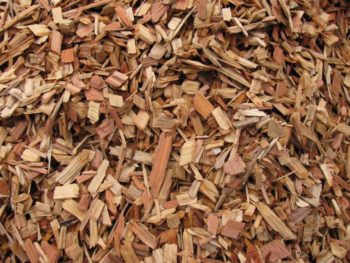
These bark nuggets are slower to break down than shredded bark, but they don’t stay in place as well. They’re not the best type of mulch for slopes or other areas where they may be washed away by heavy rain; the chips will tend to float and take off like boats. The nuggets are available in a variety of sizes; the bigger the nugget, the longer it lasts.
Stones and River Rock
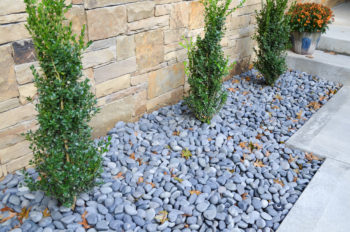
Because they are inorganic materials, stone and river rock don’t break down in the landscape, so they don’t need to be reapplied every year. However, it also means they don’t improve your soil over time. Take caution when using stone as a mulch—stones tend to get really hot. Stones are often used as mulch in cactus and rock gardens. If you decide to use rocks and stones as a mulch, cover your soil first with sheer landscaping fabric. This will prevent weeds from growing.
